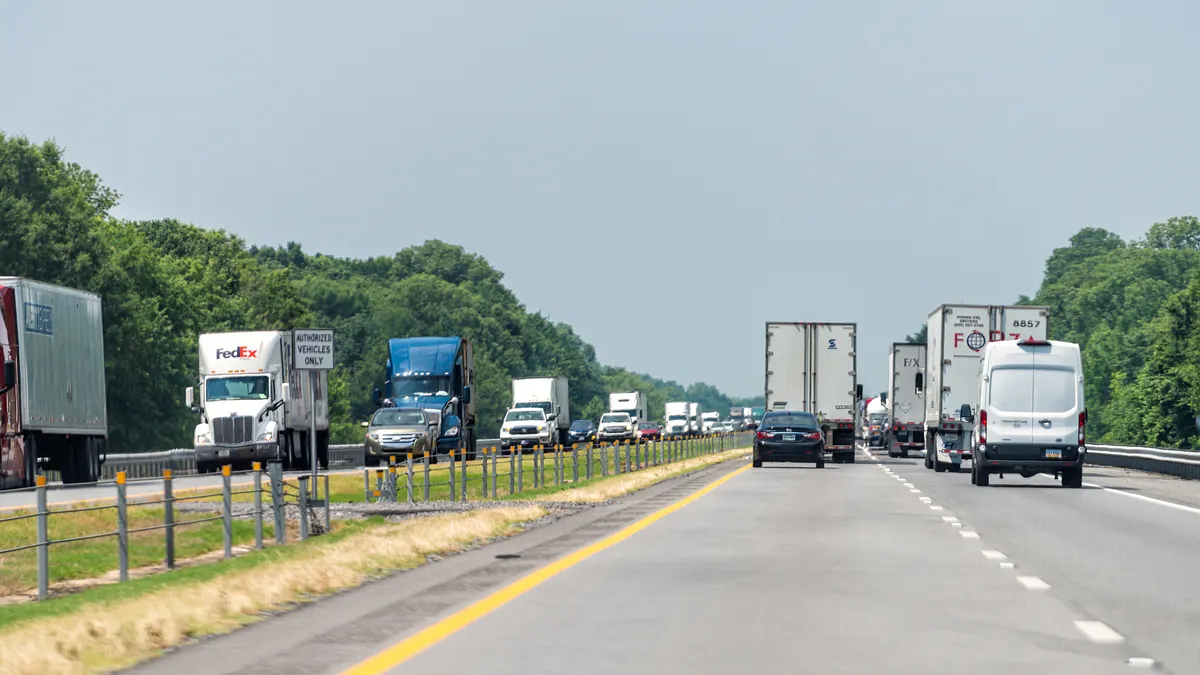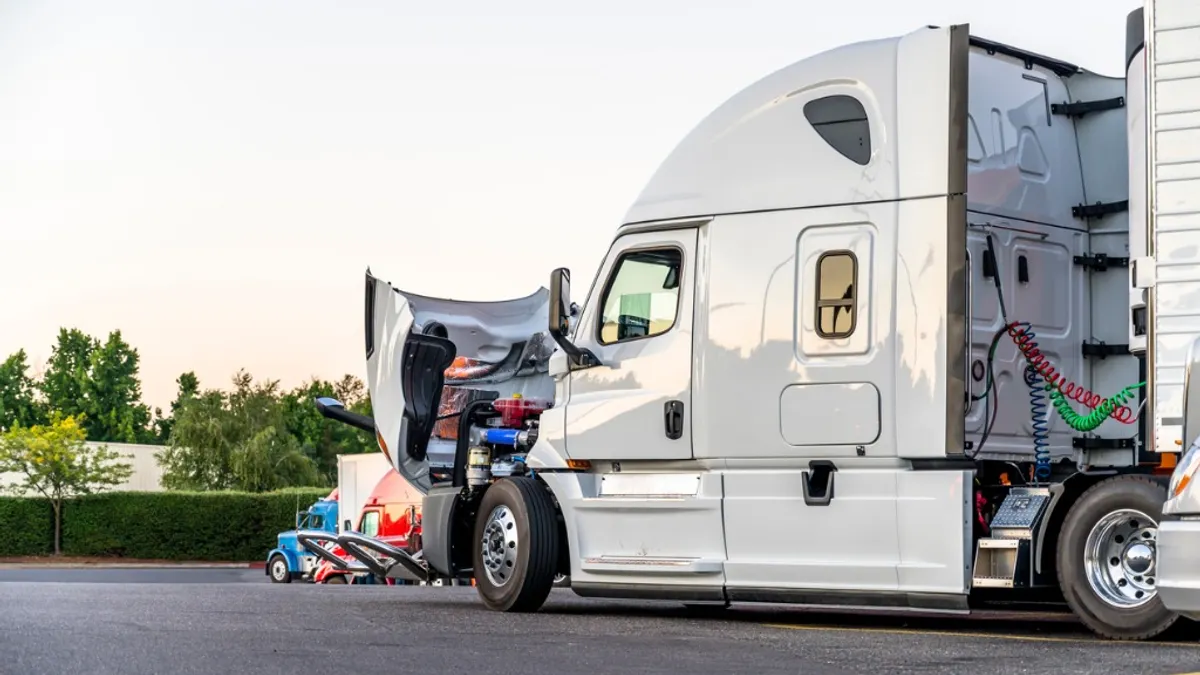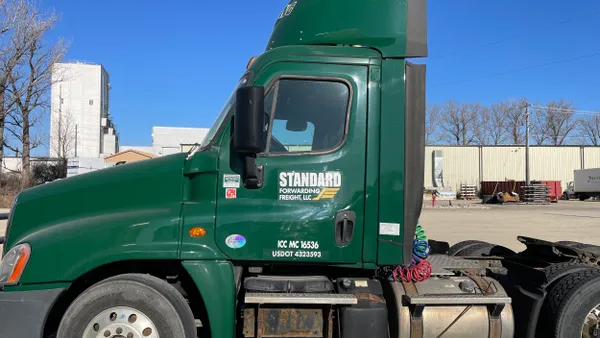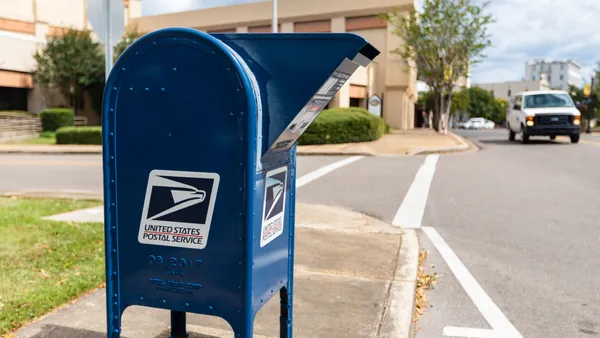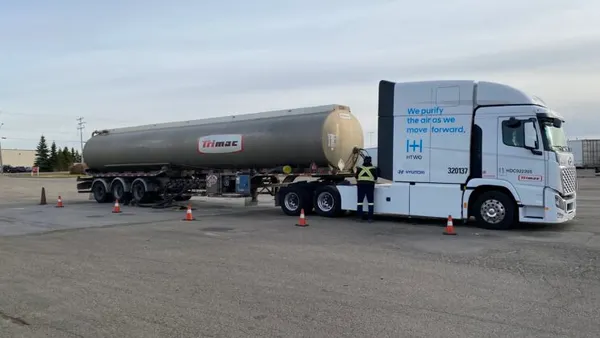Dive Brief:
- Transportation is among the seven industries most vulnerable to disruptions resulting from the COVID-19 pandemic, Moody's analysts said in a note emailed to Transport Dive, categorizing the sector under "high exposure."
- Supply chain disruptions and economic slowdowns will lower freight demand and, therefore, hurt trucking carriers and intermodal business, analysts wrote.
- The analysts said the viral outbreak will also affect parcel delivery, although UPS and FedEx "have not seen significant impact," in part due to offsets with increased demand and prices in their airfreight segments.

Dive Insight:
Trucking's intertwined nature with supply chains and cargo make the industry a bellwether for the state of the overall economy, but simultaneously expose it to greater risk should cargo demand slump.
"Lower container volumes entering the ports are reducing demand for trucking companies that typically pick up at ports," Cathy Morrow Roberson, founder of Logistics Trends & Insights, told Transport Dive in an email. As a result, seaports across the U.S. have adjusted operations, and some have reduced truck gate hours. Nearly 150 truck drivers at the Port of Los Angeles were reportedly laid off as the volume of containers arriving to the largest U.S. port shriveled.
Lower volumes will affect intermodal business for carriers, Moody's analysts said.
"Intermodal trucking firms such as J.B. Hunt, for example, are now focusing on traditional lanes against a large playing field," Roberson said, signaling carriers are already beginning to feel the impact of reduced shipments on their intermodal segments.
At the same time, transport demand has spiked as consumers panic-buy at grocery stores. Roberson said one of the big risks trucking executives need to heed is ensuring enough capacity as well as drivers.
"What happens when the truck driver is stricken by the virus? You can't easily replace him/her. That's a huge risk. They need to be taken care of," she wrote.
The uncertainty resulting from the pandemic has made it nearly impossible for trucking executives, economists and analysts to forecast business impact for the future.
"It has totally muddied the outlook for 2020," Rajeev Dhawan, director of the Economic Forecasting Center at Georgia State University, told Transport Dive in February.
John Q. Anderson, operating partner of Greenbriar Equity Group, told Transport Dive in February he expects at least a 5% to 10%, "if not more," decline in revenue and profits for trucking companies.



